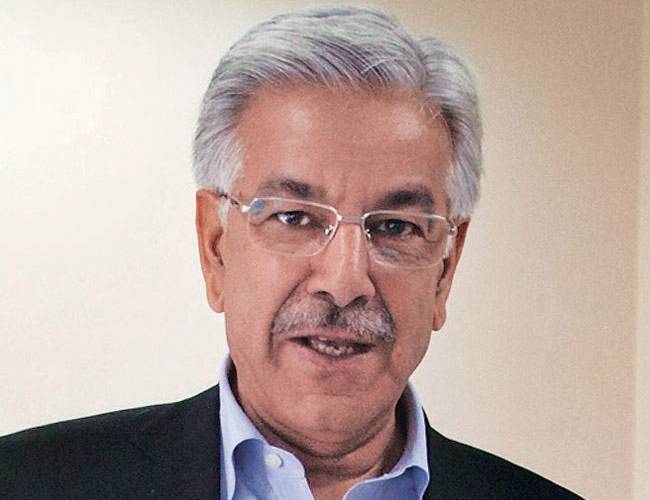ISLAMABAD - New Pakistan foreign policy will focus on enhancing defence and trade ties with Russia, while retaining the “all-weather friendship” with China, The Nation has learnt.
Highly-placed officials at the foreign ministry said that improving ties with the United States and removing misunderstandings with Washington was also a key goal set for the diplomats.
A senior official at the ministry told The Nation that the new policy aimed to enhance relationship with Muslim-majority nations to form an unofficial bloc.
“Ties with Russia are already improving so we have given it importance. The objective is to have another power with us, while we enjoy China’s backing on international issues,” he said.
The official said that relations with Muslim-majority nations were “below expectations” so it had been decided to give those countries the importance they deserved.
This month, Foreign Minister Khawaja Asif said that Pakistan was undergoing a “seismic shift” and needed to find the “correct direction” without delay.
Speaking at a news conference on the conclusion of a three-day envoys’ conference here, Asif had said Pakistan needed to “change its direction” as quickly as possible.
“We have no time. Pakistan needs to change its direction swiftly. We are undergoing a seismic shift,” he had said.
The top diplomat’s comments came after the US President Donald Trump - in his first formal address to the nation as commander-in-chief on August 20th - warned Pakistan that Washington would “no longer be silent about Pakistan’s safe havens for terrorist organisations. Pakistan has much to gain from partnering with our effort in Afghanistan. It has much to lose by continuing to harbour criminals and terrorists.”
But later, the US ambassador in Islamabad David Hale met National Security Adviser Nasser Khan Janjua to clarify the US position.
He maintained Trump’s statement had been twisted by the media.
Pakistani envoys in various countries, including the United States, Russia, China, Saudi Arabia, Qatar, Afghanistan, Iran, and India participated in the recent conference - called to review the foreign policy.
Though, the envoys’ conference is a regular feature, yet Trump’s speech and the mention of some terror outfits - allegedly operating inside Pakistan - at the Brazil, Russia, India, China and South Africa summit in Xiamen, multiplied its importance.
China and Russia were the two powers that backed Pakistan after Trump’s attack. An encouraged Pakistan hit back at Washington pledging not to compromise on its sovereignty.
This month Russia completed delivery of four Mi-35M “Hind E” attack helicopters to Pakistan.
The two countries had agreed to the Mi-35M deal in August 2015 in a move that was considered a breakthrough between the two countries.
Another official at the foreign ministry told The Nation that contacts with Russia had been enhanced and Foreign Minister Khawaja Asif would soon meet his Russian counterpart to discuss ways to bolster ties.
Asif held talks with Chinese Foreign Minister Wang Yi last week and both sides agreed to support each other on international issues.
“Ties with the Muslim-majority countries need a serious consideration and the new policy aims to achieving this goal [of improving the trust level]. With Washington, we want to remove the understandings and carry on the relationship in the interest of both the countries,” he added.
Former ambassador Ali Sarwar Naqvi said that the Pakistani ambassadors in important countries would convey the country’s message in the respective capitals.
“The envoys’ conference came at a right time. We are facing some challenges and we need diplomatic efforts to come out of it. Ties with Russia and the Muslim-majority countries are very important,” he said.
Naqvi said Foreign Minister Khawaja Asif was “timely” visiting China and other countries. “Before Khawaja Asif’s visit to US, these meetings will send right kind of message,” he added.
Defence analyst and former major general Ijaz Awan said that Pakistan should not ignore ties with the US even if Islamabad got “good signals” from Russia.
“The aim should be to have good relations with all the powers, not only Russia. Hopefully, the new foreign policy [will] be helpful to achieve these goals,” he said.
Meanwhile, on Sunday President Mamnoon Hussain met Turkish President Recep Tayyip Erdogan in Astana, on the sidelines of the first Organisation of Islamic Cooperation (OIC) Summit on Science and Technology and expressed satisfaction over historic and time-tested relations between Pakistan and Turkey.
During the meeting, the abiding strength and closeness of Pakistan-Turkey relations was re-emphasised and the determination to transform these cordial ties into a robust, multi-dimensional partnership was reaffirmed, said a foreign ministry statement.
The leaders reiterated the strong mutual support and solidarity in the face of terrorist threat posed to the two countries and reiterated their resolve to defeat the scourge of terrorism through resolute action, the statement said.






